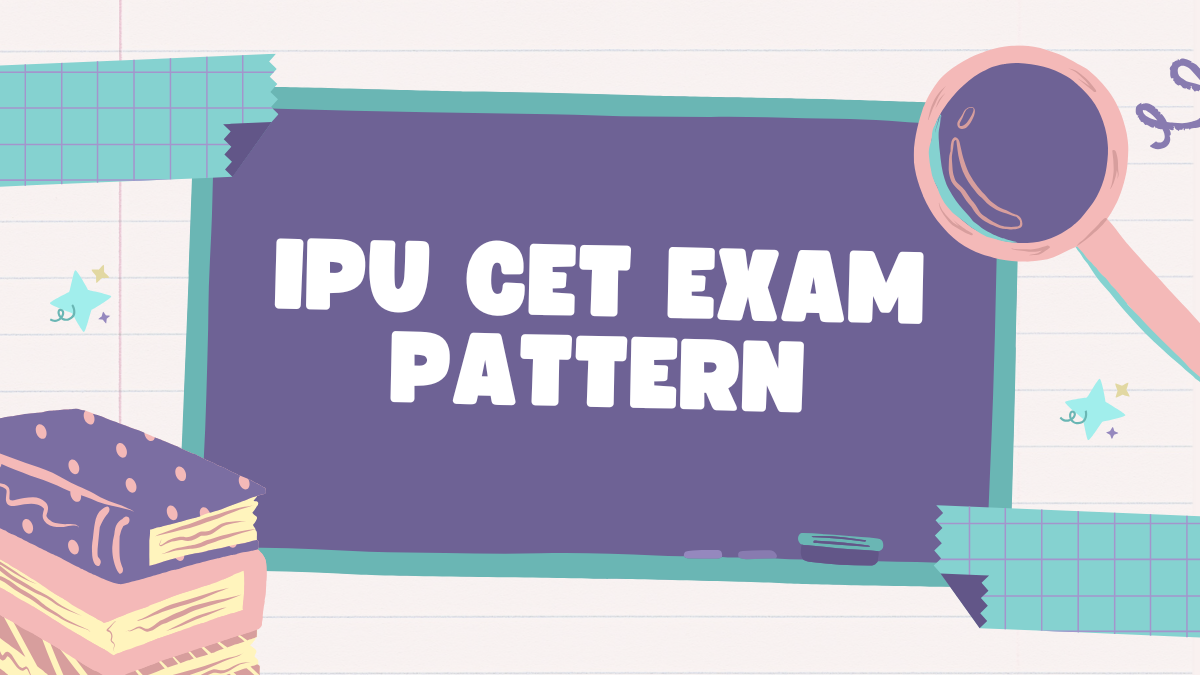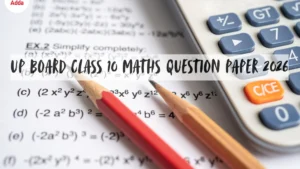The IPU CET is the Indraprastha University Common Entrance Test. A student applying for a course at Guru Gobind Singh Indraprastha University shall be allowed admission from the National Level Test, IPU CET conducted by the University, and on the merit of the qualifying degree as per the course applied for. Students will be admitted through the CET only for the courses concerning BTech/BA LLB/BBA LLB/LLM and BArch; however, the admission will be done on the basis of merit and rank obtained in JEE Main and CLAT for BTech and BA LLB, respectively. This article will guide you proper format and the IPU CET Exam Pattern.
IPU CET Exam 2026
The Indraprastha University Common Entrance Test is referred to as IPU CET. Admission for a few programs will be based primarily on the merit of qualifying degrees or programs offered at Guru Gobind Singh University, which will involve a National Level Test; it is dependent on the program applied for, and relevant to the respective institution about the candidate. CET will not be conducted for B.Tech/BA LLB/BBA LLB and LLM & BArch admissions.
Highlights of IPU CET Exam Pattern 2026
The question paper will have 100 MCQs (multiple-choice questions) worth 4 marks each, with -1 mark for each incorrect answer. Allotted time to answer the question paper will be 2 hours and 30 minutes. Go through the table mentioned below:
| Particulars | Details |
|---|---|
| Exam Mode | Offline (Pen-Paper) |
| Duration | 2 hours 30 minutes |
| Question Type | Multiple-Choice Questions (MCQs) |
| Total Questions | 100 |
| Marking Scheme | +4 for correct answer, -1 for wrong answer, 0 for unattempted |
| Medium of Exam | English (For B.Ed – English & Hindi) |
| Total Marks | 400 |
IPU CET 2026 Subject-Wise Weightage
Different subjects may carry different weightage. Knowing the weightage is very important to make a schedule for the upcoming exam, that how the students practice for their exams:
For BTech Lateral Entry (Diploma Holders – Code 128)
| Section | Weightage |
|---|---|
| Applied Mechanics | 25% |
| Applied Mathematics | 25% |
| Computer Awareness & Physics/Chemistry | 25% |
| Analytical & Logical Reasoning | 25% |
For BTech Lateral Entry (BSc Graduates – Code 129)
| Section | Weightage |
|---|---|
| BSc-level Mathematics | 40% |
| English (10+2 level) | 20% |
| Analytical & Logical Reasoning | 20% |
| Scientific Aptitude | 20% |
For BTech (Biotechnology – Code 130)
| Section | Weightage |
|---|---|
| Physics (Class 12 level) | 20% |
| Chemistry (Class 12 level) | 20% |
| Mathematics (Class 12 level) | 20% |
| Biology / Biotechnology | 40% |
IPU CET BBA 2026: Sectional Weightage
| IPU CET Sections | Number of Questions | Maximum Marks | Percentage Weightage | Time Duration |
| English language and comprehension | 25 | 100 | 25% | 150 minutes |
| General Awareness | 25 | 100 | 25% | |
| Logical and Analytical Ability | 25 | 100 | 25% | |
| Aptitude related to the field of management and communication/ Business Studies | 25 | 100 | 25% | |
| Total | 100 | 400 | – |
IPU CET 2026 Syllabus Overview
Depending on the course code, the syllabus for the IPU CET 2026 is different. The subjects for Code 128 (Diploma Holders) include Applied Mathematics, Applied Mechanics, Basic Physics & Chemistry, Logical Reasoning, and Computer Awareness. The syllabus for Code 129 (B.Sc. Graduates) is from the B.Sc. level Mathematics, Scientific Aptitude, English (10+2 level), logical reasoning, and analytical reasoning. As for Code 130 (biotechnology), the questions would be based on Class 12 Physics, Chemistry, Mathematics, and Biology (Botany & Zoology) or biotechnology.
IPU CET 2026 Preparation Tips
- Take short notes for every subject for quick revision.
- Make it a practice to attempt sample papers and previous years’ question papers regularly.
- Simulate the setup of the mock tests by attempting these papers within 150 minutes.
- For Biotechnology (Code 130) – you should focus more on Biology/Biotechnology if you come from a biology background.
- For Codes 128 & 129 – you should really beef things up when dealing with Mathematics & Reasoning.
- Implementing a study timetable should help with the time management process.
- This is a good point to mention that you always stick with standard reference books and work through all formulations, concepts, and important topics before exams.










 CUET PG City Intimation Slip 2026 (Out),...
CUET PG City Intimation Slip 2026 (Out),...
 UP Board Class 10 Maths Question Paper 2...
UP Board Class 10 Maths Question Paper 2...
 CBSE Class 12 Physics Answer Key 2026 Ou...
CBSE Class 12 Physics Answer Key 2026 Ou...














